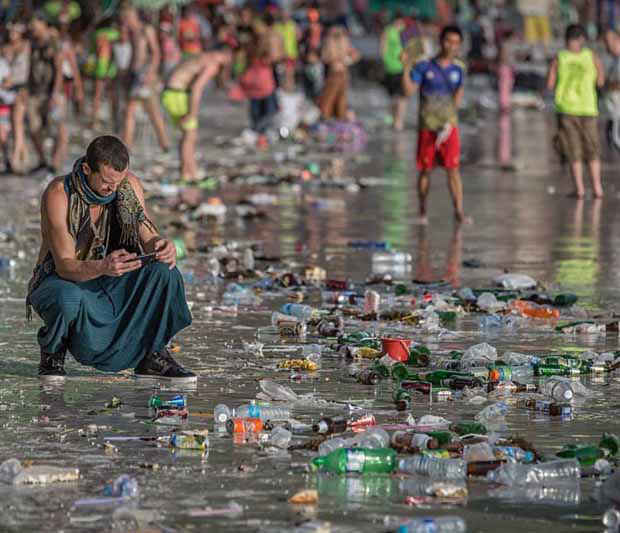
Climate change could push an additional 100 million people into extreme poverty by 2030 if the world fails to take actions, the World Bank warned in a report released Sunday.
The report, titled Shock Waves: Managing the Impacts of Climate Change on Poverty, found that poor people are already at high risk from climate-related shocks, including crop failures from reduced rainfall, spikes in food prices after extreme weather events, and increased incidence of diseases after heat waves and floods.
Such shocks could wipe out hard-won gains, leading to irreversible losses, driving people back into poverty, particularly in Africa and South Asia, it said.
According to the report, agriculture will be the main driver of any increase in poverty, as modeling studies suggested that climate change could result in global crop yield losses as large as 5 percent by 2030 and 30 percent by 2080.
Health effects, including higher incidence of malaria, diarrhea and stunting, and the labor productivity effects of high temperatures are the next-strongest drivers.
In Africa, the world’s most poorest region, climate change could cause food prices to rise as high as 12 percent in 2030 and 70 percent by 2080, it noted.
The report called the impact “a crippling blow” to African nations where food consumption of the poorest households amounts to over 60 percent of total spending.
The report, released a month before the UN climate conference in Paris, called for development efforts that improve the resilience of poor people, such as strengthening social safety nets and universal health coverage, along with climate-specific measures to help cope with a changing climate, such as upgraded flood defenses, early warning systems and climate-resistant crops.
It also called for “an all-out push” to reduce greenhouse gas emissions but noted that such mitigation efforts should not burden the poor.
For example, the savings from eliminating fossil fuel subsidies could be reinvested in assistance schemes to help poor families cope with higher fuel costs, it said.
“Climate change hits the poorest the hardest, and our challenge now is to protect tens of millions of people from falling into extreme poverty because of a changing climate.” World Bank Group President Jim Yong Kim said in a statement.
“This report sends a clear message that ending poverty will not be possible unless we take strong action to reduce the threat of climate change on poor people and dramatically reduce harmful emissions,” he said. (PNA)
- Road Tour Calabanga:San Pablo to Amang Hinulid - August 31, 2022
- Miss U Catriona Gray Rumampa ng Suporta sa Tropa - May 9, 2022
- Dalawang Shoutout SOX People’s Rally for Leni - April 4, 2022








































